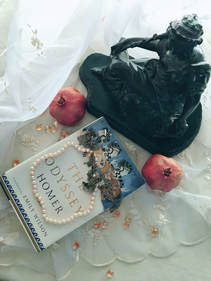
I AM reading Dr. Emily Wilson's English translation of the Odyssey. It's the first time a woman has translated Homer's work into English. The fanfare has just begun and rightly so. I'll probably do a podcast about her work, because I love it so much. I've read several translations and used them in researching my work for the Homeric Chronicles, but NONE of them has touched me like Dr. Wilson's.
For example, as everyone already points out, she begins with calling Odysseus a "complicated man." Brilliant, because Odysseus is complicated. He's not straight forward in anything he does. He's tender and loving with Penelope and Telemachus, but he's also a murderer and a man who "skirts" the boundaries of his marriage. He's vengeful, but with good reason. A trouble maker and a charmer. And stubborn. Let's not forget stubborn. Despite all this, we love to love Odysseus. Her word choices stand out for me, more than any other translation. Reading the scene where Odysseus is deciding when to kill the slave women (and mind you it's not a moral dilemma of IF he should, but a matter of WHEN he will kill them...this is one of the ways he's complicated: his ability to premeditate massive slaughter) builds such powerful imagery. I can see a mother dog guarding her puppies, teeth bared and growling at strangers. It's scrappy, fierce, and dangerous.
Dr. Wilson is equally descriptive with Penelope. I love the passage where Penelope has just been told that the suitors are plotting to kill her son, Telemachus. She's distraught because he left Ithaka without telling her and no one knows for sure where he is. So, she can't protect him. Her mind torments her like a trapped lion...What parent can't relate to that terrifying feeling?
She definitely spanked some magic out of Homer's Greek.
If you enjoy Greek mythology, you're going to love this new translation. I'm using it for all my podcasts on Greek Mythology Retold and for the continued research for the Homeric Chronicles.
0 Comments
(Disclaimer: these are my show notes. I do go off script when I podcast, but here's the basic framework)
Hello fellow myth lovers! I’m so excited to share with you the Greek world of the Homeric Chronicles. If you watched the movie Troy and loved it, or felt like you wanted more...If you’re currently watching the BBC One Troy: Fall of a City (or waiting for it to hit your Netflix playlist), this podcast is for you. You’re a Myrmidon. Basically, if you love Greek mythology in any form you’ve come to the right place. Shall we get started? When I first began toying with the idea it was...what if you could read about all the mythological stories as one seamless tale? I thought, what if George RR Martin was telling it? It would be EPIC! CRAZY HUGE! Can you imagine the cast of characters? It’d be a celebrity Who’s Who of the ancient myth-historic Greek world. And because I love these stories, I got to thinking...what if I wrote it? No way, I can’t do that. Then, I thought, you have a degree in history, why not try? And the Homeric Chronicles was born. That left me with the million dollar question: Where to start? How to begin? After piles of research, 25 gray hairs carefully dyed dark brown, and a bazillion cups of coffee later, I realized exactly where I needed to start: with Homer. But not just some retelling that was meant to get you to the “great war” or to take you through the bizarre journeys of Odysseus back to Ithaka...It needed to be MORE. Much more! But, Homer’s work in the Iliad and Odyssey definitely provide the backbone. I wove many other stories that touched on the characters in Homer’s work into the structure of the spine. The major heroes and heroines of Homer’s tales are entwined with so many other characters I had to dig deep, b/c it’s chronological, I had to make some hard choices. The original myth-makers weren’t worried about telling stories that made chronological sense outside of the story they were reciting. But for the Homeric Chronicles to be what I envisioned that’s exactly what I had to do. I wanted to include the regulars: Achilles, Paris, Hektor, Odysseus, Menelaus, Agamemnon, Helen, Hecuba, Cassandra, Andromache, Leda, Deidamia, Priam, Tyndareus, Peleus, Thetis, and Chiron just to name a few. And include characters like Palamedes, the poor guy who unfortunately pissed off Odysseus, Tantalus the first husband of Clytemnestra, Oenone Paris’s first wife, Peisidike the Methymnaan princess in love with Achilles, well, you get the picture. Now, I was tasked with putting the myths in chronological order, and keeping them all easy to connect with. It wasn’t until I fell in love with GRRM’s SOIAF that I knew structuring a story of this epic scale was possible. I take you along several characters’ journeys through five major kingdoms. And after the movie Troy ruthlessly cut them out (and I wonder if David Benioff wishes now that he hadn’t), I put the pantheon of gods and goddesses back in there. On to chronology: The first chronological hiccup involved Helen, Paris and Achilles. Let’s start with Paris, in particular: the Judgment of Paris. Most people familiar with the story assume that Paris gives the judgment of the fairest goddess to Aphrodite and leaves to Sparta not long after. But, it just doesn’t make sense that way, not in the context of the larger EPIC tale. Let me explain: The golden apple contest that caused the Athena, Aphrodite and Hera to seek Paris as the judge occurred at the wedding feast of Peleus and Thetis. These are Achilles parents. So, Achilles, the greatest fighter of all the Greeks has NOT been born yet. He’s the star of the Iliad. So, the judgment of Paris takes place soon after the wedding feast, before Achilles is conceived and born. Why does this matter? Because, we have to wait at least 15 to 18 years for Achilles to grow up, get trained, and father a son, Neoptolemus, BEFORE Odysseus can discover him on Skyros, dressed like a girl and call our hero into action. This means two things: Paris has to be at least 15-18 years old to be considered MAN enough to judge the goddesses (he’s not an 8 yr old judging 3 of the most powerful females in the story); therefore, Paris is 15-18 years older than Achilles. Most movies and books depict Paris and Achilles about the same age, or as in Troy make Paris much younger than Achilles. It’s all wrong. Paris is definitely Achilles’ elder. That raises the next logical question: When does Paris meet and woo Helen? Because that is the EVENT that brings the Argives, Achaeans, Danaans to Troy. Paris couldn’t have taken off with Helen any time soon following the judgment because that would mean Paris and Helen would’ve been in Troy for years before Menelaus even tried to get her back...B/C we’d be waiting for Achilles to get born and come of age. Even if you take the whole Paris and Helen get lost in Egypt into consideration that still leaves too many years in between the kidnapping and the attempted rescue. Remember, no matter what, Achilles has to be old enough to lead the Myrmidons and have fathered a child before he goes to Troy, as other prophecies depend on it.
My research took me to Apollodorus (a 2nd century AD compilation of ancient texts) which states in 3.13.8 that Achilles was 9 when he was taken to Skyros, because Odysseus was looking for him due to a prophecy by Agamemnon’s seer, Kalchus. There is some consensus that Achilles left Skyros at about 15. But let’s break this down chronologically and logically.
1. If Odysseus is looking for Achilles when Achilles is 9 and that’s why Thetis hid him as a girl, then he has to be hiding there for years before he’s old enough to get the princess Deidamia pregnant. So, for all these years, what are the Greeks under assembled under Agamemnon’s banner doing in Aulis? Twiddling their thumbs? Sewing sails? Getting sunburns? If the consensus is correct (and we have to make choices to be consistent) at least 6 years (give or take) have to pass until Odysseus finds Achilles. 2. I recall reading that there were TWO calls to war that met at Aulis...the first one which assembled the Greek tribes went to Aulis was a bust b/c they needed Achilles, so everyone went home and waited...then returned...years later? after Achilles was found? This doesn’t make any sense...it would’ve been a monumental feat getting that many ships and men from all across the Greek world assembled just once, but twice? And in all his searching, Odysseus never makes it back to Ithaka to sneak a little love time in with Penelope? I don’t buy it. 3. What makes sense in the human and mytho-historic terms is that Achilles is 9 when he goes to Skyros with Thetis fully aware about Achilles’ dual fate, and that some day he’d have a huge decision to make. When the call to Aulis came, 6 or so years later, that’s when Odysseus and Ajax find him. It gives time for him to grow up, father a son. I do give Achilles a few more years, rounding out his age at 18. Why? Because I used the historic figure, Alexander the Great, as a model. Alexander distinguished himself at Chaeronea at 18, so makes sense that a young man at 18 could indeed be seen to lead an army of warriors (Myrmidons). Well, Myrmidons, times up for today. Up next time let’s take a deeper look into Helen’s age and how placing her story in chronological sequence was challenging, but not impossible. For now-- What do you think about Paris being 18 years older than Achilles? that Helen couldn’t have been born at the time of the judgment? How do you think a comprehensive timeline will change up the Greek myths as you know them?
You can find out by reading the Homeric Chronicles
Song of Sacrifice and Rise of Princes Love to hear your thoughts, answer questions, and connect with my fellow Greek mythology lovers. Come on tweet me! Join my mailing list for updates and Greeky things! Until next time, let’s take the advice given to Menelaus in the Cypria: “know that the gods made wine the best thing for mortal man to scatter cares.” Drink your wine and be merry Myrmidons. Start the journey...
Sometimes people think being an historian is all about names and dates and politics, but it’s so much more. My favorite thing about studying ancient Greece is getting to a museum and looking at all the pottery. You get to see these beautiful works of art close up. Pictures just don't do justice to the sheer size of some of the pottery. My favorite place on the west coast to gaze at antiquities is the Getty Museum in Malibu, California. If you get a chance to go, you should. It's amazing not only for its art work, but because it's an actual replica of wealthy Roman villa complete with gardens and a giant pool.
While writing the Homeric Chronicles, I reference amphorae quite a bit because these vessels were commonly used to store wine, oil, and water much the way we use Tupperware. So, one vessel that intrigues me is the two handled amphora depicting Achilles and Ajax playing dice while trying to relax during the Trojan War. The vessel is from the Archaic Period (525-520 BCE). I love this scene and decided to reference it in Rise of Princes, book two of the Homeric Chronicles. Playing dice humanizes the Greek heroes, making them reachable characters because they too needed reprieve from stress and bad days, as well as the grinding hardships of war. Enjoy the video :)
Start your journey with the Homeric Chronicles grab Song of Sacrifice today!

A generation before the Trojan War begins...
meet the royal families of Troy, Ithaka, Sparta, and Mycenae. 
The Trojan War has turned into a bloody seige...
Achilles and Hektor rise to fame and glory.
If you enjoyed this post, give it a LIKE or a TWEET :) And by all means, SHARE :)
© Janell Rhiannon2016 Any information from this blog must be properly cited :) Good Morning Everyone!!! Today, I have a fun surprise that I’d like to share with you. I’ve teamed up with over 45 fantastic historical romance authors to give away a huge collection of novels, PLUS a KINDLE FIRE to one lucky winner! You can win my novel Song of Princes, plus books from authors like Margaret George author of The Confessions of Young Nero and Elisabeth Storrs author of The Wedding Shroud. I am so honored to be a part of this promotion. I wish you the best of luck and fortune!! Enter the giveaway by clicking here: https://www.booksweeps.com/enter-win-50-historical-fiction-books-feb-17/ Good luck, and enjoy! Janell Rhiannon
The book tour began a couple weeks ago, so I started biting my nails. It's a nerve wracking thing to just put your work out there and then wait, hoping someone will like it. After your book is done is probably the hardest thing for indie writers. You've spent months on this narrative, spent money on the village that helps you get it looking good, you upload it to your platform (we mostly use Amazon, because who doesn't use Amazon these days) and wait some more. You get the congratulatory email from the virtual giant and your book baby is published. And you wait some more. Then you think, "How the f*ck does anyone even know I did this thing that ate up all my spare time when I could've been dating, or having cocktails, or singing karaoke on the beach in an over-sized sweater..." [Let's be honest, I did all that except the dating part. I can sum up everything I know about dating in my little pinky. ] My answer to this was: I NEED HELP!!!! So, I hired Nicole and Giselle. Nicole is a virtual assistant to writers and Giselle runs Xpresso Book Tours.
Nicole has helped me organize my random and wild thoughts. I start down some marketing hole and look back only to find, I've not written anything for a week and it's already the next week. She helps me keep it together. Giselle organizes the touring of book excerpts, reviews and giveaways. This has been great. I wanted to acknowledge these fine woman for their contribution to my indie author life and getting Song of Princes (re-titled Song of Sacrifice) out there in the blog-o-sphere. The REVIEWS are IN...
Song of Princes (re-titled Song of Sacrifice) is doing fine... I've listed a few link below where you can check out who said what. And much thanks, by the way, to these dedicated blogger/reviewers. Because Amazon has changed it's policies up, most of the reviews are on individual sites and/or on Goodreads (it has a 4.26 rating as of 10/10/2016). If you really like Greek mythology, a little sex (okay a lot at times), romance, battle, you will like this series. I'm happily banging away at the computer keys half way through the second installment...65,000 words and counting.
Zaheerah of Book Reader and Reviewer said: "...What’s great about The Song of Princes is that it involves all the characters, rather than focusing on one. We see how one action of one character come to affect another and the events seam together effortlessly."
The Pursuit of Bookiness said: "...I am now a convert, hooked on this series and eagerly awaiting the next book. Written in a style that is easy to read while at the same time pulling you in to the story. A real page turner and a book I couldn't put down." Married to Books Review and Blog said: "...Plenty of action, thrills and spills, the storytelling was very well portrayed in a world full of myths and legends. For action readers, lovers of Greek Mythology and historical fiction lovers, Song of Princes offers a rich, detailed story line into the lives of the Gods." Hopelessly Devoted Bibliophile said: "Truth be told, I know that this is a series that many readers are going to love. I don't blame them one bit. It's tough to take something that's already a legend, and mold it to your own devices. Rhiannon has accomplished just that. Readers who love this kind of book, filled with fate and fortune, will likely fall in love with Song of Princes as well." Liz Gavin said: "Being a huge fan of mythology in general – Greek, in particular – I started off Janell Rhiannon’s book with great expectations. Which she totally fulfilled and then some. As I said before, my standards regarding Troy were already quite high; but, Song of Princes knocked them into the stratosphere...Fast-paced story lines, poetically described settings, realistically developed characters. These are just a few examples of the book’s qualities. Mix them up with clever shifts of POVs and engaging dialogues, you’ll have an engrossing novel you cannot put down." Fanatical Paranormal Romanitcal said: "I loved this book!!! ...I loved this book!!! After slogging through Homer’s “Odyssey” TWICE (once in high school and again in college), this is a much better telling of the ancient story. The author actually draws you into the story and makes you WANT to continue reading." Taking It One Book at a Time said: "Any fan of Mythology, or Gods, will devour this book. Not only did the author provide you with a beautifully written fictional tale, she was able to intertwine facts elegantly within the story. There were no boring moments or lulls at any point during this story...in fact it was a whirlwind of excitement! Really quick, can we talk about how delicious this cover is too?? O-M-G! (I can only fantasize about what it looks like in person) Trust me when I say that the passion blasted all over this cover reflects throughout the book....and there isn't a speck of disappointment here." Mama Reads said: "Rhiannon’s spin on these wild and exotic stories definitely nods to the commonly known tales while giving us an original epic fantasy with characters we can become wrapped up in and worlds full of wonders."
Thank you to all the bloggers and reviewers who took the time to check out the book, and also a huge level of gratitude to all the readers who bought it, borrowed it and read it as well!
*** If you enjoyed this post, give it a LIKE or a TWEET :) And by all means, SHARE :) If you'd like a heads up on future Big Ten Interviews or giveaways, join my email list. The only spam I like is with my eggs. © Janell Rhiannon2016 Any information from this blog must be properly cited :) When I first began toying with the idea...what if you could see the mythological stories surrounding the major figures of the Homeric tales (the Iliad and the Odyssey) in a seamless telling? The cast of characters is a celebrity Who’s Who in the world of ancient Greece: Achilles, Paris, Hektor, and Odysseus. But, you can’t begin to tell their stories without reaching beyond what Homer provides and dig into other mythological cannon to discover more about Helen, Hecuba, Cassandra, Andromache, Leda, Deidamia, Priam, Agamemnon, Menelaus, Tyndareus, Peleus, Thetis, and Chiron. Then, there’s the pantheon of gods and goddesses to contend with. The major heroes of Homer’s tales are entwined with other characters and to get a sense of how that’s even possible, I had to dig deep and make some choices. I used the events of the Iliad and the Odyssey as the backbone of the chronological story. But after days of compiling data, I realized the task was much more difficult than it seemed. The original storytellers weren’t trying to make chronological sense of the various stories. The first glitch was the Paris and Helen myth. Everyone who’s familiar with the story assumes that Paris gives the judgment of the fairest to Aphrodite, who has promised him the love of the most beautiful woman in the world, Helen of Sparta. Soon after, Paris goes to Sparta and absconds with Helen and sails back to Troy. This widely held assumption is, well, wrong. Let’s examine why. The golden apple event that occurred was at the wedding feast of Peleus and Thetis. These are Achilles parents. So, Achilles, the greatest fighter of all the Greeks has NOT been born yet. He’s the star of the Iliad. The Muse sings about his wrath, his undoing of character after Agamemnon humiliates him and his cousin and comrade, Patrokles, was killed. So, the judgment Paris gives about who the “fairest” goddess is takes place soon after the wedding feast, before Achilles is conceived or born. Bottom line, we have to wait at least 15 years for Achilles to grow up, get trained, and father a son BEFORE Odysseus can discover him on Skyros, dressed like a girl and call our hero into action. This means two things: Paris has to be at least 15-18 years old to be considered MAN enough to judge the female flesh; therefore, he’s 15-18 years older than Achilles. Most movies and books depict Paris and Achilles about the same age. But they can’t be. Paris is definitely his elder. The other question in this story is: When does Paris meet and woo Helen? And how old is Helen? Paris couldn’t have taken off with her any time soon following the judgment because that would mean they’d be in Troy for years before Menelaus even tried to get her back. Even if you take the whole jaunt to Egypt bit seriously, that still leaves too many years in between the kidnapping and the attempted rescue. Remember, no matter what, Achilles has to be old enough to lead the Myrmidons (some sources say Achilles was 15 when he went to Troy. (I gave him a few more years to make it more plausible, using Alexander the Great as a close model. Alexander led his first troops into major battle, under his father’s command, at Chaeronea at age 18). So, if Helen were already born and left with Paris shortly after the judgment, she’d be away in Troy for 15-18 years before Menelaus went for her because he’d have to wait for Achilles to be born and grow up. That makes no sense. Also, there is the first kidnapping Helen endures by Theseus when she was just a young girl, probably pre-teen around 12 or 13. She’s the hostage of the king of Athens, or rather his mother’s hostage, until she’s eventually rescued by her brothers, Pollux and Caster, and taken safely back to Troy. She is married to Menelaus shortly after this event to secure her safety and the safety of Sparta. Menelaus did not marry an old maid. Helen would have been about 15-18 years old. This is the young queen of Sparta who was seduced by a much older Paris. Their elopement/kidnapping is the precipitating event of the Trojan War. This is the dogma of the mythology surrounding Troy that we can’t alter. Therefore, Helen is most likely Achilles age. She would’ve had to been born about 15-18 years before the ships launch to rescue her. Achilles would’ve had to been born at least 15-18 years before he led the Myrmidons across the sea to Troy. Paris is in his 28-30 and Helen and Achilles are contemporaries at 15-18 years of age. This means Paris has an entire life he lived as a man, long enough to be abandoned by Priam, raised by Agelaus, married to his first wife, a nymph named Oenone and to have a son with her named Corythus. He also had to be discovered by Priam and re-embraced as family. Then sent by Priam to rescue Hesione, Priam’s sister, who was kidnapped by Herakles...you get the picture. One thread wraps around another thread and so on. And yes, some times the “trying to make sense of it” turns what we think we know on its head. I read a review of Song of Princes, by Nadine Paque-Wolkow, she said, in reference to the ages of Paris, Helen and Achilles, “...this may sound like a good idea so first, but I was nervous when Paris was still a child at 30% of the book. Then there was a small leap in time, Paris is now 18, but neither Achilles nor Helena are even born. I admit that I can not recite the dates of birth of all Trojan hero from the head, but in my head [it] is all messed up, just because I already (through books and films etc.) had a picture of all. Also, I glanced back to the percentage display...Half the book was almost already read! Helena was a baby and Achill[es] five at scarce 50%. Hector but already late twenties! And there are still decades until the big final battle of both the gates of Troy! For me, most people had therefore a completely wrong age and everything felt ... wrong and strange.” I think a lot of readers may also have this initial dissonance about the dates and timeline, because most films and books haven’t tried to put a logical chronology to the mythology. (I have a very detailed timeline in the front of the book.) I’ve tried to do just that. By leaving the seduction/kidnapping/eloping of Helen with Paris as the definitive catalyst of the war, it has made several other elements of the entire story sync together in a way most people haven’t thought of, or even entertained. That and there are the many fragments and other sources for these characters besides Homer that had to be integrated. And if that doesn’t get your stars in a twinkle, think about this. The Iliad begins almost a decade after the ships disembarked from Aulis for Troy, making every hero and heroine ten years older when we read about them, than when they set out on the adventure. They are all full grown men and women by the time we see them in action in Homer’s tales. I welcome comments and questions. And again, I thank Nadine for her thoughtful and detailed review of book one of the Homeric Chronicles. It certainly made me get this blog about the timeline question out in a timely fashion :) Here’s the link to Nadine’s original post. It’s in German, but you can easily translate it to English in Google Translate. Happy reading!! http://meineliteratour.blogspot.de/2016/07/rezension-song-of-princes.html If you enjoyed this post, give it a LIKE or a TWEET :) And by all means, SHARE :) If you'd like a heads up on future Big Ten Interviews or giveaways, join my email list. The only spam I like is with my eggs. © Janell Rhiannon 2016 Any information from this blog must be properly cited :)  Photography by Tim Huitt Graphic by Lina Rose, Cover model Nathan Schultz Photography by Tim Huitt Graphic by Lina Rose, Cover model Nathan Schultz I wish I could date Achilles!! He’s strong, golden, fierce, HOT as f@ck and...a little bit ruthless. He’s the bad boy of Greek myth and the tragic hero of the Iliad (maybe this is what’s wrong with my love life!). As I began the Homeric Chronicles years ago, I realized that the story I wanted to tell was bigger than my skills at the time. I wasn’t ready. I had to get some writing under my belt, some serious reading done, and get over my fear of writing steamy sex scenes alongside gory battles scenes. I was AFRAID to write sex scenes!! Well, I’m not anymore. Needless to say, the Homeric Chronicles are for a mature reading audience. I wanted this series to feel realistic, one epic story where several story lines of heroes and heroines converge at the Trojan War and beyond. This began the hair pulling task of attempting to piece together a timeline of events, because stories unfold chronologically with the occasional flashback and perhaps some subtle foreshadowing. The late George Shipway, author of Warrior in Bronze, a story about Agamemnon said in his chronological note to readers that, “...it would be a rash scribbler who ventured on definite dates.” Well, I am that “rash scribbler.” (Side note: the timeline he created is only 17 years ahead from mine, so we wrote in a similar mindset.) Writing realistic mythology is tricky, especially Greek mythology because so many people are familiar with the major components of the stories. So, how does a writer approach the known with fresh content and a sense of realism? It’s bloody hard! First of all, I had no intention of twisting the major myth structure with some alternative endings, or creating a tertiary character, like a slave, to tell the main hero’s or heroine’s tale. I also didn’t want to simply regurgitate the Iliad and the Odyssey, because that’s been done before. What makes the Homeric Chronicles different from other Trojan War tales is that the series is an epic tale of Greek mythological heroes whose destinies take them to Troy and beyond, in chronological order. I used extant archeological data about Troy and Asia Minor and Greece, as well as scholarly literature to create the massive timeline. I had to use all my research training as an historian to get this off the ground. It’s an on-going effort to maintain the integrity of the chronological structure with a few surprises here and there. The Homeric Chronicles is, therefore, a combination of myth and history. I invite you to begin your journey with birth of Paris and Achilles in the Song of Princes, Book One of the Homeric Chronicles. Available in kindle and paperback @ Amazon. If you enjoyed this post, give it a LIKE or a TWEET :) And by all means, SHARE :) If you'd like a heads up on future Big Ten Interviews or giveaways, join my email list. The only spam I like is with my eggs.
|
Author
|
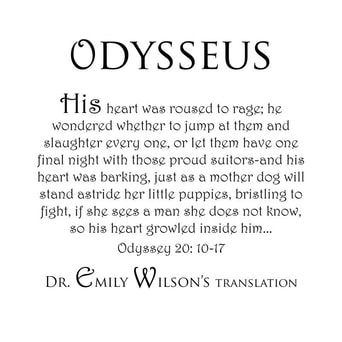

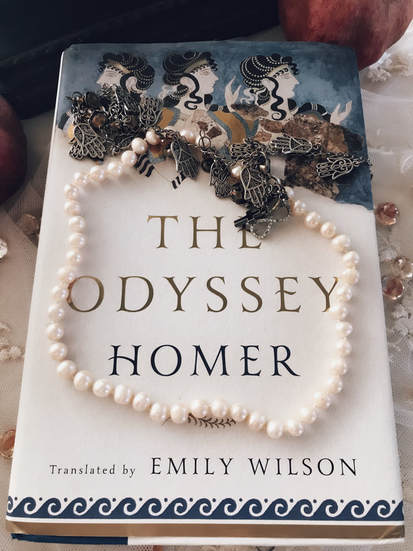

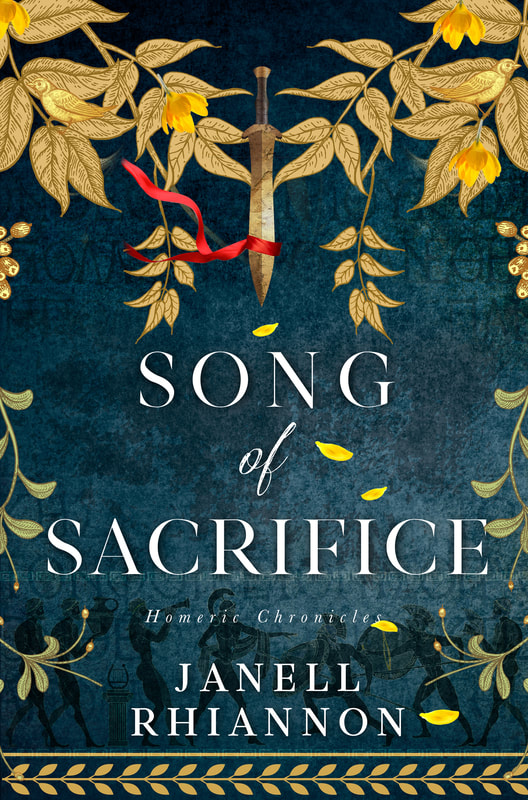
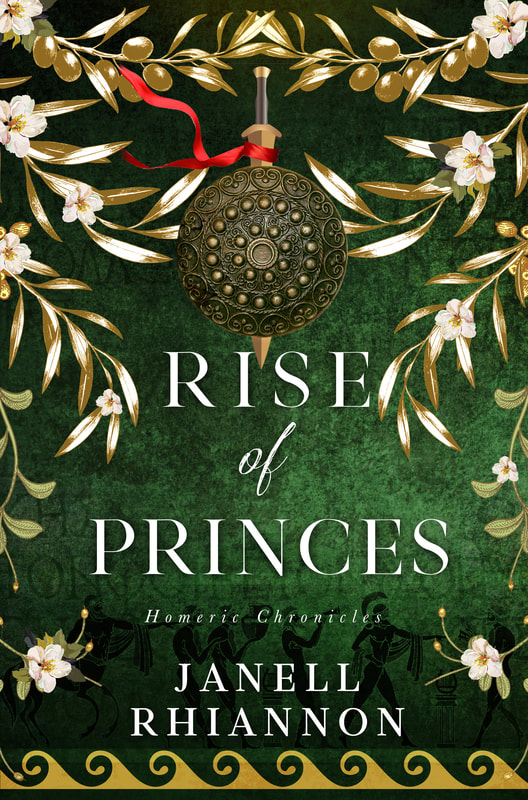


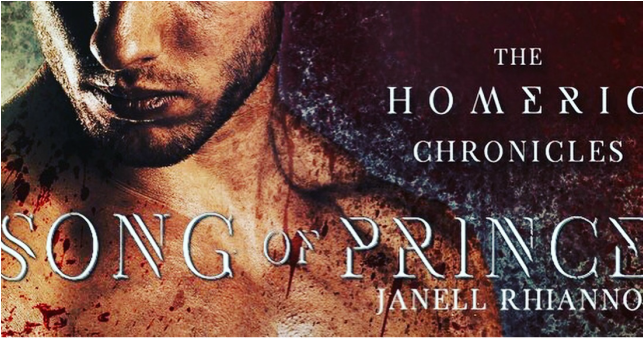
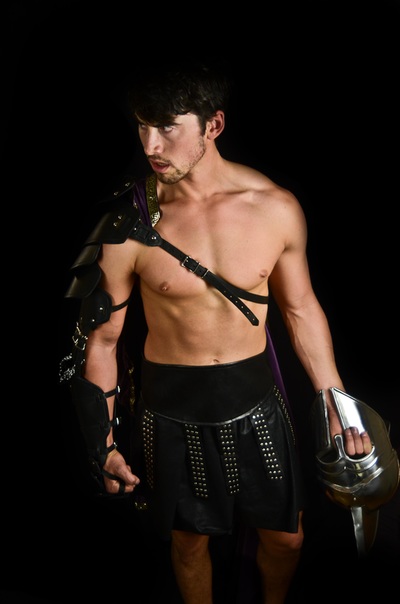
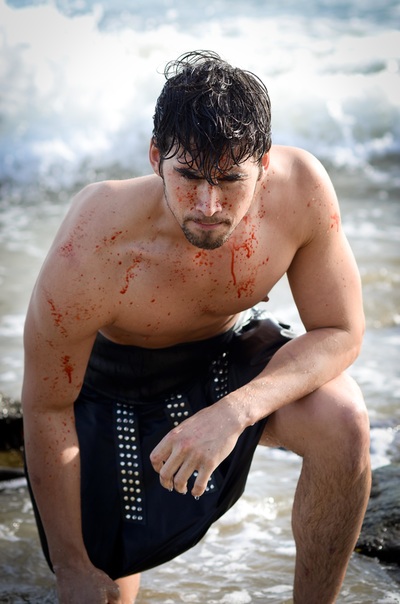
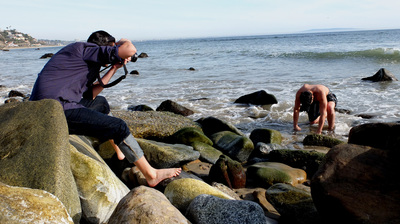
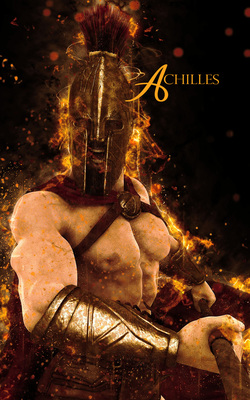
 RSS Feed
RSS Feed